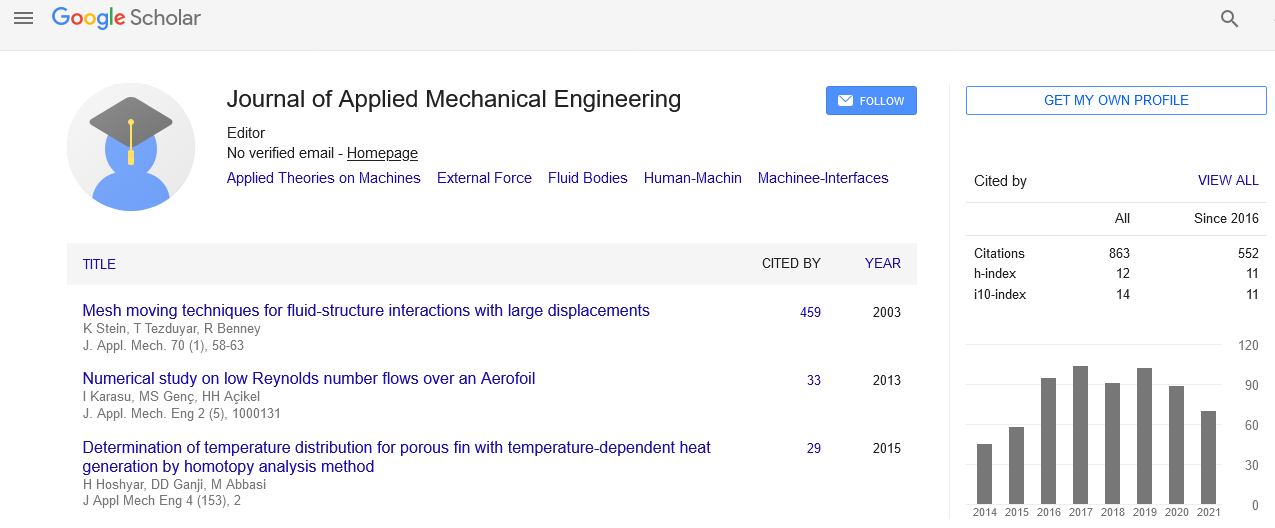Indexed In
- Genamics JournalSeek
- JournalTOCs
- CiteFactor
- RefSeek
- Hamdard University
- EBSCO A-Z
- OCLC- WorldCat
- Publons
- Google Scholar
Useful Links
Share This Page
Journal Flyer

Open Access Journals
- Agri and Aquaculture
- Biochemistry
- Bioinformatics & Systems Biology
- Business & Management
- Chemistry
- Clinical Sciences
- Engineering
- Food & Nutrition
- General Science
- Genetics & Molecular Biology
- Immunology & Microbiology
- Medical Sciences
- Neuroscience & Psychology
- Nursing & Health Care
- Pharmaceutical Sciences
Novel projection methods for uncertainty propagation in complex dynamical systems
International Conference and Exhibition on Mechanical & Aerospace Engineering
September 30-October 02, 2013 Hilton San Antonio Airport, TX, USA
Sondipon Adhikari
Accepted Abstracts: J Appl Mech Eng
Abstract:
In Propagation of uncertainties in complex engineering dynamical systems is receiving increasing attention. When uncertainties are taken in to account, the equations of motion of discretised dynamical systems can be expressed by coupled ordinary differential equations with stochastic coefficients. The computational cost for the solution of such system mainly depends on the number of degrees of freedom and number of random variables. Among various numerical methods developed for such systems, the polynomial chaos based Galerkin projection approach shows significant promise because it is more accurate compared to the classical perturbation based methods and computationally more efficient compared to the Monte Carlo simulation based methods. However, the computational cost increases significantly with the number of random variables and also the results tend to become less accurate for longer length of time. In this talk two novel approaches will be discussed to address these issues. A modified polynomial chaos method in the time domain will be discussed in order to address the problem of inaccuracy for longer time-scales. A reduced Galerkin projection scheme in the frequency domain will be discussed to address the problem of large number of random variables. Practical examples will be given to illustrate the application of the proposed Galerkin projection techniques.
Biography :
Adhikari is the chair of Aerospace Engineering in the College of Engineering of Swansea University. Currently he is a Wolfson Research Merit Award holder from the Royal Society. He received his Ph.D. in 2001 from the University of Cambridge (in Trinity College). He was an Engineering and Physical Science Research Council (EPSRC) Advanced Research Fellow and winner of the Philip Leverhulme Prize (2007). He was a lecturer at the Bristol University and a Junior Research Fellow in Fitzwilliam College, Cambridge. He was a visiting Professor at the Carleton University, University of Johannesburg and a visiting scientist at the Los Alamos National Laboratory.

